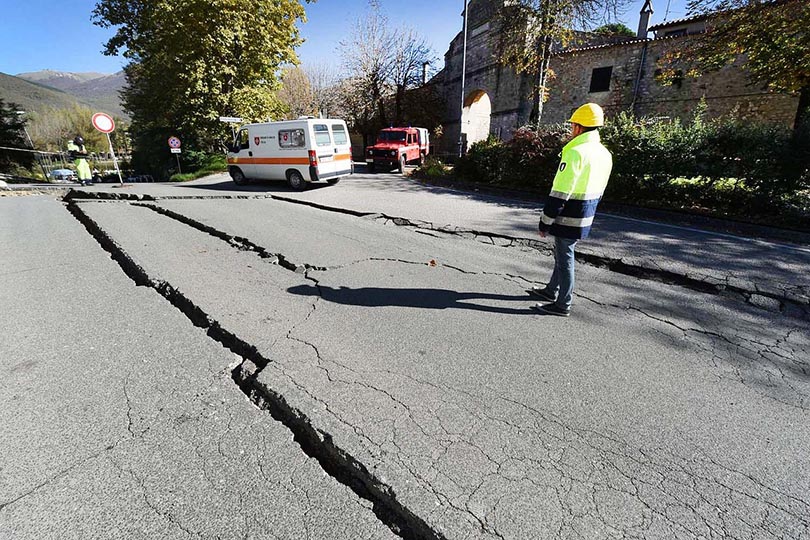Why Is My House So Humid? 7 Possible Reasons
-

- Last updated:

Humidity is one of those things that requires a delicate balance. The ideal indoor humidity level is 40-60%. If it is lower than this, our chances of suffering from dry skin or sinus problems will increase (Dr. Mayan). However, if it gets too high, that can cause damage to your home or things inside your home. Below, we will look at seven potential causes of the humidity being too high in your home.

The 7 Possible Reasons Why Your House is Humid
1. Humid Outside Environment
If you live in a humid geographical location, this is the likely culprit for the increased humidity in your house. The nice thing about this potential cause is that it will be obvious. Either the environment outside is humid, or it’s not. Most areas do not have a significant fluctuation in humidity. However, there are exceptions to this. It is easy to find a humidex online for your locale if you are wondering what the predicted humidity levels are going to be.
- Ensure all windows and doors create an adequate seal to keep exterior moisture out.
- Have an air conditioning system installed because not only do they keep your home cool, but they also take the humidity out of the air.
2. Air Conditioning System
An air conditioning system can be a lifesaver in the summer heat—literally. It can also help remove moisture and humidity from the air. However, it becomes overpowering if the air conditioning system is too large. It will cool too fast when it cycles on, therefore running on short, ineffective cycles. This will keep the house cool but prevent moisture from being removed from the air. For these reasons, it’s essential to have a trusted professional size and install your air conditioning system.
- Depending on the particular system you have, it may be adjusted or fine-tuned to dehumidify the air better.
- Running a dehumidifier in problem rooms or areas of your home can help combat moisture.
3. Everyday Activities

Many of our daily activities can be the culprit of high humidity levels in our homes. Depending on the house’s layout, even localized humidity in one room can spread throughout the house. Some everyday things to be mindful of would be long, hot showers, boiling water for cooking, or doing laundry. Realistically, any of these things that cause high humidity are unavoidable. Still, there are a few things we can do to help.
- Ensure adequate-sized bathroom fans are installed and being used.
- Use a dehumidifier in the highest humidity areas.
- Opening windows can allow humidity out (assuming you don’t live in a humid location).
4. Plumbing Leaks
Bathrooms and kitchens are usually the most humid areas in a house. This is amplified further if there are leaks in the plumbing. It doesn’t have to be a significant leak either. In a way, it’s almost better to have a bad leak because then it will cause immediate damage and demand a fix. On the other hand, it may go unnoticed if it is a minor leak and out of sight. Over time it will saturate the area, and the humidity level will steadily increase.
- If a leak is discovered—no matter how minor—fix it right away.
- Make it a habit to check the plumbing under sinks or places where you don’t usually see the pipes regularly.
5. Moisture from Ground Outside

There are a few different types of foundations, and all are susceptible to moisture damage from the ground outside. Even if the foundation is concrete, moisture can still seep through, causing high humidity. This humidity is the perfect habitat for mold growth in combination with typically dark basements. A leading cause that puts foundations at risk is improper preparation before backfilling with dirt. If more than a small amount of moisture is seeping through your foundation, weeping tile may not have been installed when the house was built.
- You may need to call a contractor to dig up around the foundation to waterproof it and install weeping tile (loose stones to allow water drainage).
- In many cases, a powerful dehumidifier in the basement is also an effective solution.
6. Poor Ventilation in House
Air movement in your home is crucial to maintaining proper humidity levels. For example, if there is no airflow in your bathroom, the humidity will build up in it while leaving another room with low humidity. If the humidity is allowed to get too high in one room, it can damage windows and paint, and cause a musty smell. High humidity in the air also encourages mold growth which can be dangerous—especially if there are children.
- Ensure high humidity areas like kitchens and bathrooms have adequate ventilation fans.
- Ceiling fans and freestanding electric fans can be used to help move air.
- Opening windows to allow a breeze will help with ventilation as well.
7. Inadequate Window and Door Sealing

If you live in a geographical location that is commonly humid, then having windows and doors with inadequate weather-stripping can be a culprit to higher indoor humidity. Luckily, if this is your only problem, it is a relatively inexpensive and easy fix. Not only will this help with moisture, but when your windows and doors seal properly, your heating and cooling will be more efficient.
- Install new weather stripping around doors and windows.
- Adjust doors and windows to close securely if they get loose over time.

Conclusion: Humid House
If the humidity in your home is high, there will often be more than one reason. For example, it would be typical for poor ventilation and everyday activities like showering or cooking to cause humidity problems together. Obviously, we can’t stop showering, and we need to eat, so getting an extra fan going or opening a couple of windows may be the solution that brings the humidity down to that sweet spot.
Featured image credit: Arek Socha, Pixabay
Contents

